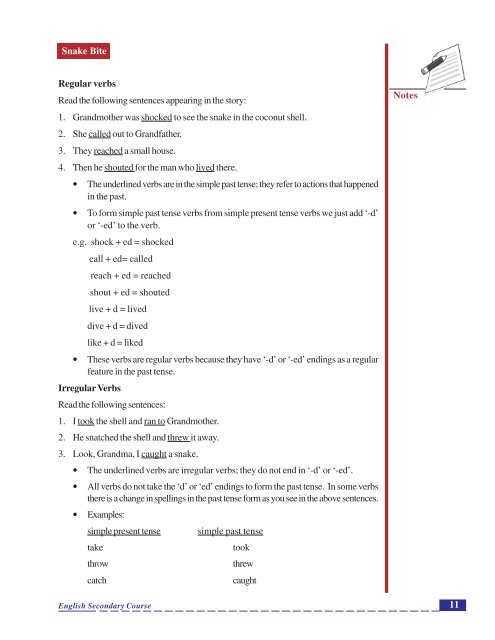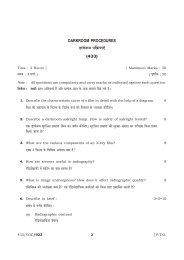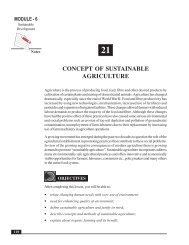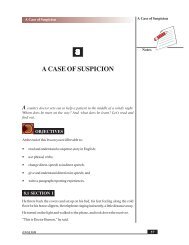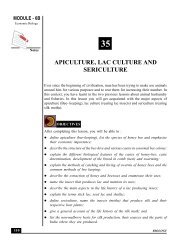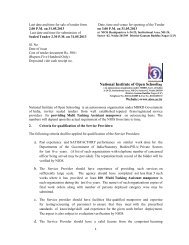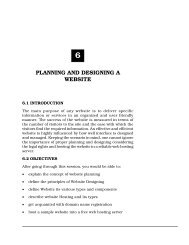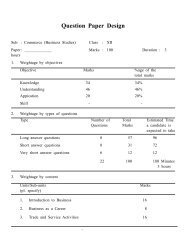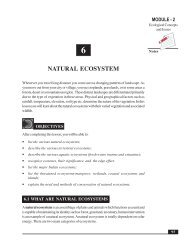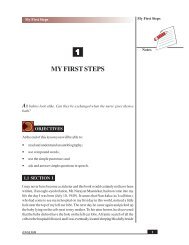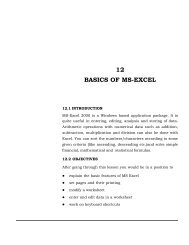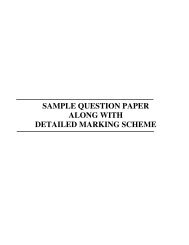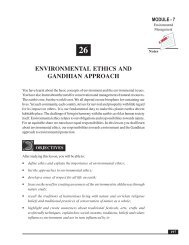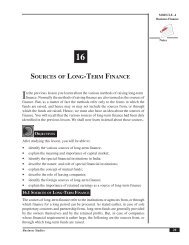You also want an ePaper? Increase the reach of your titles
YUMPU automatically turns print PDFs into web optimized ePapers that Google loves.
Snake Bite<br />
Regular verbs<br />
Read the following sentences appearing in the story:<br />
1. Grandmother was shocked to see the snake in the coconut shell.<br />
2. She called out to Grandfather.<br />
3. They reached a small house.<br />
4. Then he shouted for the man who lived there.<br />
• The underlined verbs are in the simple past tense; they refer to actions that happened<br />
in the past.<br />
• To form simple past tense verbs from simple present tense verbs we just add ‘-d’<br />
or ‘-ed’ to the verb.<br />
e.g. shock + ed = shocked<br />
call + ed= called<br />
reach + ed = reached<br />
shout + ed = shouted<br />
live + d = lived<br />
dive + d = dived<br />
like + d = liked<br />
• These verbs are regular verbs because they have ‘-d’ or ‘-ed’ endings as a regular<br />
feature in the past tense.<br />
Irregular Verbs<br />
Read the following sentences:<br />
1. I took the shell and ran to Grandmother.<br />
2. He snatched the shell and threw it away.<br />
3. Look, Grandma, I caught a snake.<br />
• The underlined verbs are irregular verbs; they do not end in ‘-d’ or ‘-ed’.<br />
• All verbs do not take the ‘d’ or ‘ed’ endings to form the past tense. In some verbs<br />
there is a change in spellings in the past tense form as you see in the above sentences.<br />
• Examples:<br />
simple present tense simple past tense<br />
take took<br />
throw threw<br />
catch caught<br />
English Secondary Course<br />
Notes<br />
11


